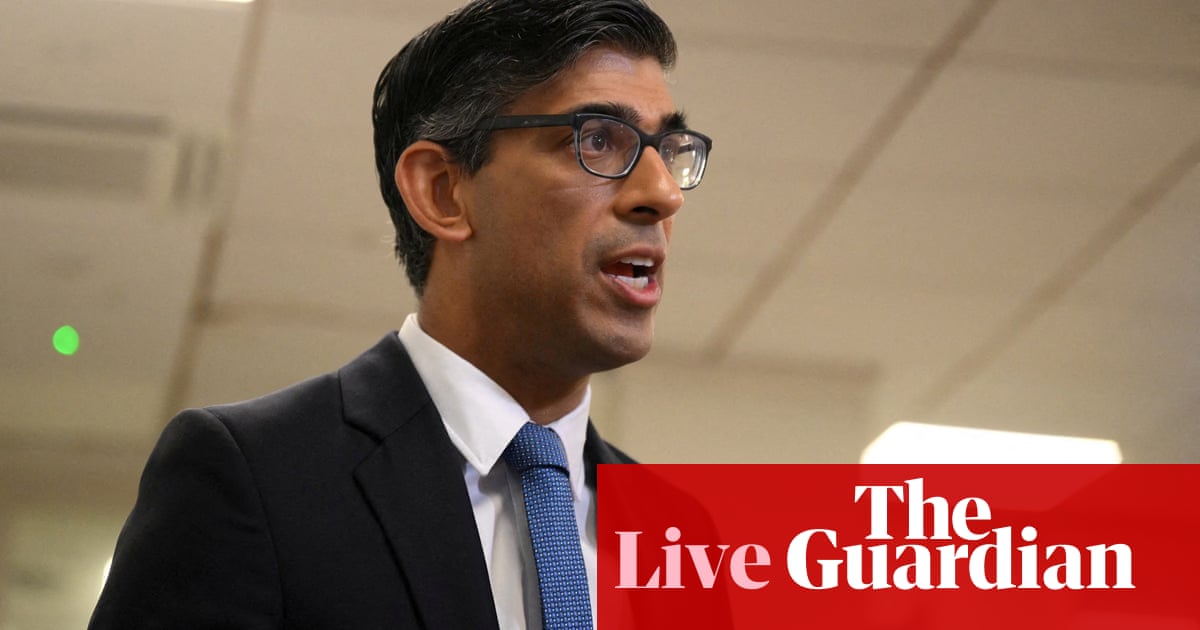
The chancellor must expand support for people self-isolating or risk a fourth national lockdown, Labour has said, as new analysis from the party suggests the lockdown is costing the economy £1.6bn a week.
In one of her major pre-budget interventions, the shadow chancellor, Anneliese Dodds, urged Rishi Sunak to radically extend eligibility for the £500 support payment to anyone without access to workplace sick pay.
At the moment only about one in eight workers are automatically able to access the payment. About 70% of people who apply for financial support are rejected, according to data from half of England’s councils.
“Anyone who needs support to self-isolate should be able to access it, no matter where they live or when they develop symptoms,” Dodds said. “That is the only way we can keep the virus under control when restrictions are lifted, avoid the devastating economic damage of another lockdown and help the vaccine programme succeed. However, under the current system just three in 10 people who should be self-isolating are doing so.”
The head of the national test-and-trace system, Dido Harding, admitted earlier this month that at least 20,000 people a day are believed not to be self-isolating when they are told to, raising concerns about the system’s effectiveness.
Giving evidence to a Commons committee, Harding said about 20% of people who were in touch with contact tracers did not self-quarantine in their house.
Labour will argue that low-income parents of self-isolating children should also receive the payment and that rules covering asylum seekers who have no recourse to public funds should be suspended to improve isolation rates.
Dodds also said the government should urgently commit to reforming statutory sick pay as another barrier to self-isolation, saying the payment of £95.85 a week was inadequate.
The government is to set out a roadmap on Monday that will spell out how restrictions will be eased as the vaccination programme progresses.
Dodds said the government needed to take the opportunity to improve on the holes in the system that had paved the way for multiple resurgences of the virus and a cycle of lockdowns.
“The government’s roadmap to recovery must improve the system of self-isolation in this country,” she said. “That means expanding the test and trace support payment to those who don’t have a workplace sick pay scheme, better enforcement, and action to fix the broken system of statutory sick pay. This will help prevent another lockdown, protect public health and secure our economy.”
Labour has called for better awareness of the payment to aid enforcement, saying anyone who tests positive should be made aware of the payment when they receive their test result.
A poll commissioned by the Royal Society for Arts, Manufactures and Commerce found huge public support for extending support payments, including from Tory voters.
Handing people full pay while self-isolatingwas backed by 76% of voters overall, including 74% of Tory voters and 81% of Labour backers.
The chancellor’sbudget on 3 March is widely expected to be another rescue package for the economy, with schemes such as furlough now likely to continue until the autumn.
The TUC has said the distribution of the support payment has been patchy and highly dependent on local councils’ discretion. Councils in England are responsible for processing applications for the scheme, but Labour said a “postcode lottery” had developed, and councils that had used more of the government pot were either rationing the payments or having to spend more of their own money.
Labour said its calculation for the cost of lockdown was based on data from the National Institute for Economic and Social Research, which predicts that GDP in the first quarter of 2021 will be 11.6% down on the fourth quarter of 2019 as a result of lockdown restrictions, which they assume will “persist for the most part of the first quarter”.
This implies that GDP in Q1 2021 would be £21bn less than Q4 2019 levels, or £1.6bn a week, as a result of the national lockdown.












